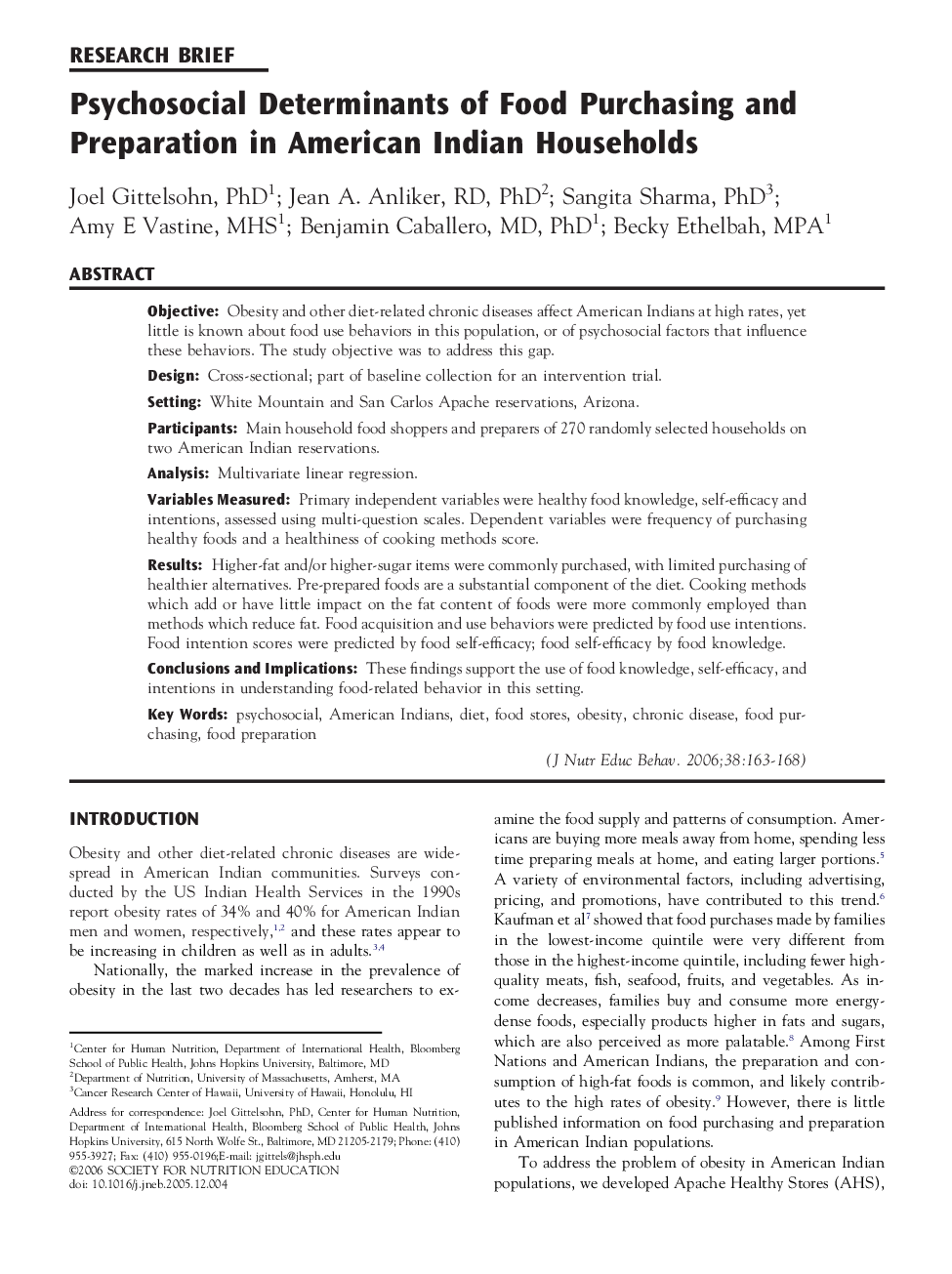| Article ID | Journal | Published Year | Pages | File Type |
|---|---|---|---|---|
| 363429 | Journal of Nutrition Education and Behavior | 2006 | 6 Pages |
ObjectiveObesity and other diet-related chronic diseases affect American Indians at high rates, yet little is known about food use behaviors in this population, or of psychosocial factors that influence these behaviors. The study objective was to address this gap.DesignCross-sectional; part of baseline collection for an intervention trial.SettingWhite Mountain and San Carlos Apache reservations, Arizona.ParticipantsMain household food shoppers and preparers of 270 randomly selected households on two American Indian reservations.AnalysisMultivariate linear regression.Variables MeasuredPrimary independent variables were healthy food knowledge, self-efficacy and intentions, assessed using multi-question scales. Dependent variables were frequency of purchasing healthy foods and a healthiness of cooking methods score.ResultsHigher-fat and/or higher-sugar items were commonly purchased, with limited purchasing of healthier alternatives. Pre-prepared foods are a substantial component of the diet. Cooking methods which add or have little impact on the fat content of foods were more commonly employed than methods which reduce fat. Food acquisition and use behaviors were predicted by food use intentions. Food intention scores were predicted by food self-efficacy; food self-efficacy by food knowledge.Conclusions and ImplicationsThese findings support the use of food knowledge, self-efficacy, and intentions in understanding food-related behavior in this setting.
